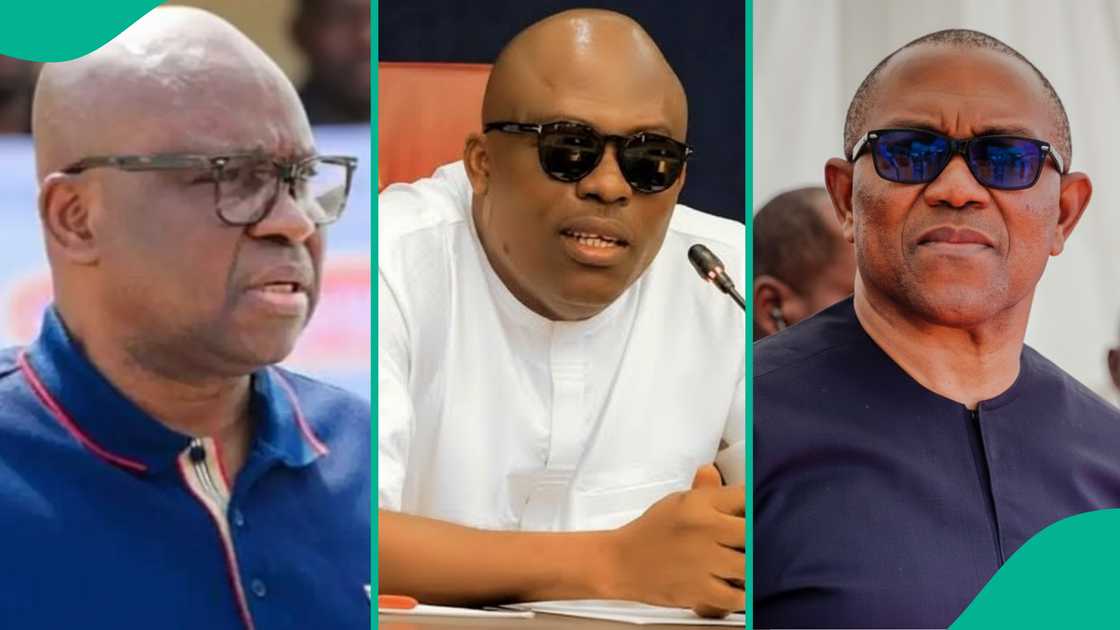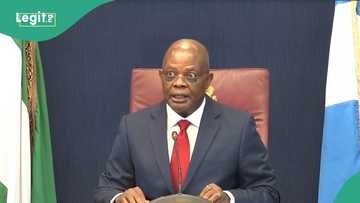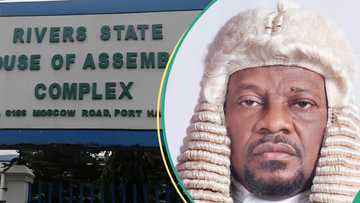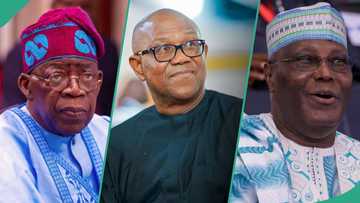Full List of Governors Removed While in Office Since 1999
- Since Nigeria’s return to civilian rule in 1999, the removal of state governors has remained a recurring feature of its political landscape
- From impeachment proceedings to emergency declarations, these removals often reflect deeper struggles for power, accountability, and constitutional interpretation
- This report chronicles the most significant cases of governors ousted from office, offering insight into the evolving dynamics of Nigerian democracy
Diepreye Alamieyeseigha – Bayelsa State (2005)
Diepreye Alamieyeseigha, the first civilian governor of Bayelsa State under Nigeria’s Fourth Republic, was elected in 1999 and re-elected in 2003. His tenure came to an abrupt end in 2005 when he was impeached by the Bayelsa State House of Assembly.
The impeachment followed a series of corruption allegations, including theft of public funds and money laundering. Alamieyeseigha had earlier been arrested in London but escaped back to Nigeria under controversial circumstances.

Source: Twitter
Two years after his removal, he pleaded guilty to six charges and was sentenced to prison.

Read also
Emergency rule: Sole administrator Ibas exits Rivers govt house after performing last official duty
Rashidi Ladoja – Oyo State (2006)
Rashidi Ladoja served as governor of Oyo State from 2003 until his impeachment in January 2006. The Oyo State House of Assembly removed him from office, installing his deputy, Christopher Alao-Akala, as governor.
Ladoja later claimed that his impeachment stemmed from his refusal to support President Olusegun Obasanjo’s third-term agenda. The courts eventually ruled in his favour, and he was reinstated in December 2006, serving out the remainder of his term until 2007.
Ayodele Fayose – Ekiti State (2006)
Ayodele Fayose was elected governor of Ekiti State in 2003. In October 2006, he and his deputy, Biodun Olujimi, were impeached by the state legislature over allegations of corruption and mismanagement of public funds. The Ekiti Poultry Project was at the centre of the accusations.
Reports at the time suggested Fayose fled the country, though he later denied this, claiming he went into hiding for fear of political persecution. The Supreme Court subsequently ruled that the impeachment was unconstitutional, describing it as a usurpation of power.

Read also
Breaking: Rivers Assembly set to resume sitting as Tinubu announces cessation of state of emergency
Peter Obi – Anambra State (2006)
Peter Obi’s tenure as governor of Anambra State was marked by legal battles and political instability. He was first removed from office in November 2006 through an impeachment by the state assembly.
However, the courts later declared the impeachment illegal and reinstated him. Obi’s governorship was interrupted multiple times, including a controversial declaration of a new election while he was still in office. His legal victories helped clarify tenure limits and electoral rights under Nigeria’s constitution.
Joshua Dariye – Plateau State (2004)
Joshua Dariye became the first Nigerian governor to be suspended from office under emergency rule since the return to democracy.
In May 2004, President Olusegun Obasanjo declared a state of emergency in Plateau State following deadly ethno-religious violence that claimed thousands of lives. The unrest began with attacks in Yelwa and spread to Kano, prompting retaliatory killings. Obasanjo suspended Dariye and the entire state assembly, appointing retired Major General Chris Alli as sole administrator to restore order.
Ayodele Fayose – Ekiti State (2006, Emergency Rule)
Following Fayose’s impeachment, President Obasanjo declared a state of emergency in Ekiti State due to a leadership vacuum and political instability.
The emergency rule led to the suspension of the state assembly and the appointment of retired General Tunji Olurin as sole administrator. This marked the second time a Nigerian governor was removed under emergency powers since 1999.
Siminalayi Fubara – Rivers State (2025)
In March 2025, President Bola Ahmed Tinubu declared a six-month state of emergency in Rivers State, citing prolonged political unrest and a breakdown of governance. Governor Siminalayi Fubara, his deputy, and all elected members of the Rivers State House of Assembly were suspended.
Admiral Ibokette Ibas (rtd.), a former Chief of Naval Staff, was appointed as sole administrator. The suspension followed months of conflict between Fubara and former governor Nyesom Wike, which had paralysed the state’s legislative and executive functions.
Source: Legit.ng


